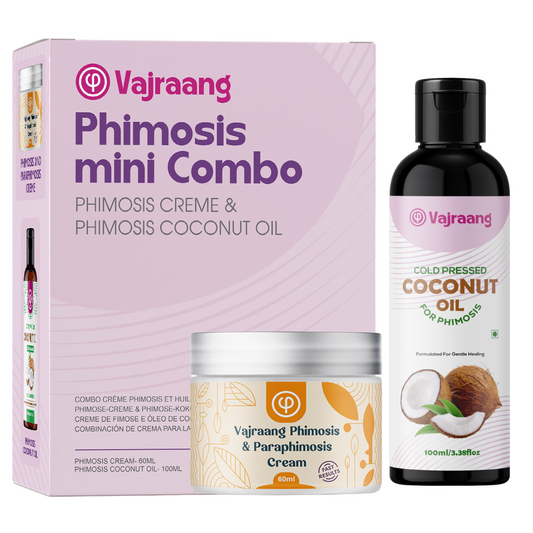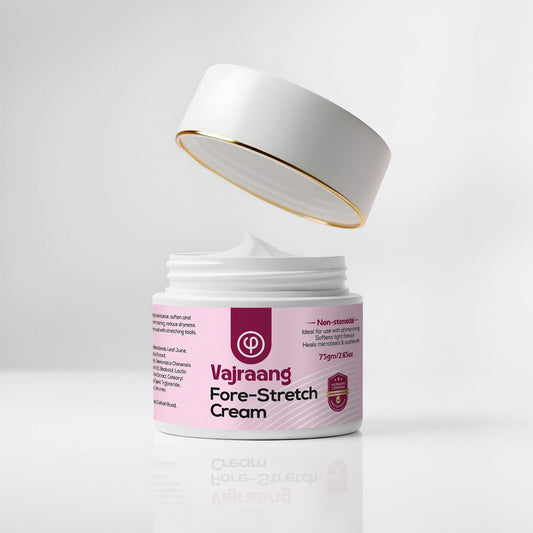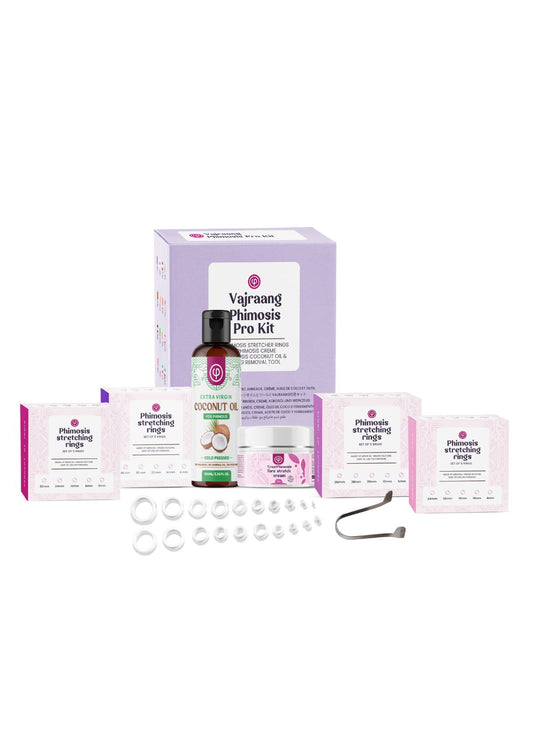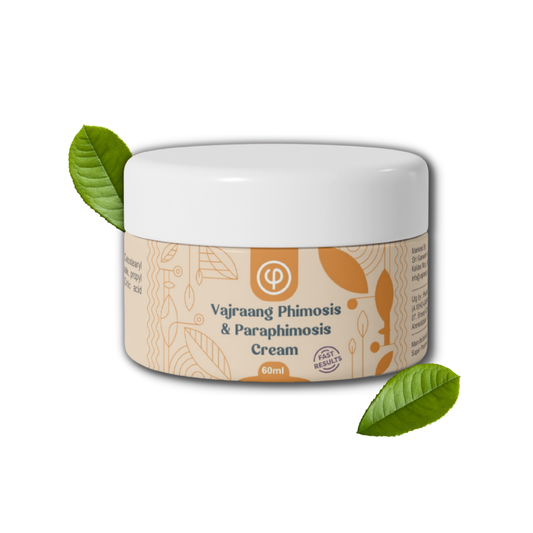Phimosis treatment can be transformative, but avoiding complications like paraphimosis and tears is essential for a smooth recovery. These setbacks can derail progress and make the journey more challenging. By understanding potential risks and adopting preventive measures, you can ensure a safe and steady path toward achieving full foreskin mobility.
Understanding Paraphimosis
Paraphimosis occurs when a tight foreskin is pulled back behind the glans (head of the penis) and becomes stuck. This can cause swelling, pain, and restricted blood flow, making it a medical emergency that requires immediate attention.
Common Causes:
• Forceful Retraction: Pulling the foreskin back too quickly before it’s ready.
• Sexual Activity: Vigorous movements during intercourse or masturbation.
• Improper Stretching: Incorrect use of tools like Vajraang Phimosis Stretching Rings, leading to excessive retraction.
For more on preventing paraphimosis, read “Preventing Paraphimosis and Tears During Phimosis Treatment or Sexual Activity”.
Why Tears Happen During Phimosis Treatment
Tears occur when the foreskin or phimotic band is overstretched or subjected to abrupt force. These microtears can hinder progress in several ways:
1. Scarring: Scar tissue is less elastic and harder to stretch.
2. Increased Tightness: Healing can make the phimotic band more restrictive.
3. Infection Risks: Open wounds in sensitive areas are prone to infection.
Learn more about avoiding discomfort in “Do This If You Experience Pain During Stretching”.
Practical Steps to Prevent Paraphimosis and Tears
1. Adopt a Gentle Approach
• Stretch Slowly: Gradual, consistent stretching ensures safe progress without injury.
• Choose the Right Tools: Use appropriately sized tools like the Vajraang GlanPro Tool for precise and comfortable stretching.
• Lubricate Generously: Apply Vajraang Extra Virgin Coconut Oil to reduce friction and enhance elasticity.
2. Be Cautious During Intimacy
• Use Condoms: These act as a barrier, reducing direct friction on the foreskin.
• Ample Lubrication: Ensure both partners use sufficient lubrication for smooth, controlled movements.
• Avoid Sudden Movements: Keep actions slow and deliberate to prevent overstretching.
Check out “Navigating Sex with Phimosis, Glans Sensitivity, and a Tight Foreskin” for practical intimacy tips.
3. Recognize Warning Signs
• Pain or Tightness: Stop immediately if discomfort occurs during stretching or intimacy.
• Swelling or Redness: Rest and maintain hygiene if irritation arises.
4. Care for Tears Properly
If tears happen:
• Clean Gently: Wash with warm water, avoiding harsh soaps.
• Apply Healing Balms: Use natural products like aloe vera or coconut oil for faster recovery.
• Pause Stretching: Allow the skin to heal completely before resuming.
Handling Paraphimosis
If paraphimosis occurs despite precautions:
1. Act Quickly: Delaying can worsen swelling and discomfort.
2. Manual Reduction: Use lubrication and gently push the foreskin back over the glans. Ice packs can reduce swelling before attempting this.
3. Seek Medical Attention: If unsuccessful, contact a doctor immediately.
For more on when to seek help, read “When to Seek Medical Advice for Phimosis”.
Why Prevention Matters
Preventing complications ensures a smoother, safer treatment journey. By respecting your body’s limits, using the right tools, and progressing patiently, you protect yourself from pain and setbacks, making recovery faster and more effective.
Incorporating proper practices, as outlined in “Lifestyle Changes and Practices to Enhance Phimosis Recovery”, can further support your progress.
Final Thoughts
Phimosis treatment is a journey that requires care, patience, and consistency. By adopting preventive measures and using tools like Vajraang Phimosis Rings and Vajraang Extra Virgin Coconut Oil, you can make steady, safe progress.
Remember, the goal isn’t just to stretch—it’s to stretch comfortably and confidently. With each step forward, you’re getting closer to a life free from phimosis.





